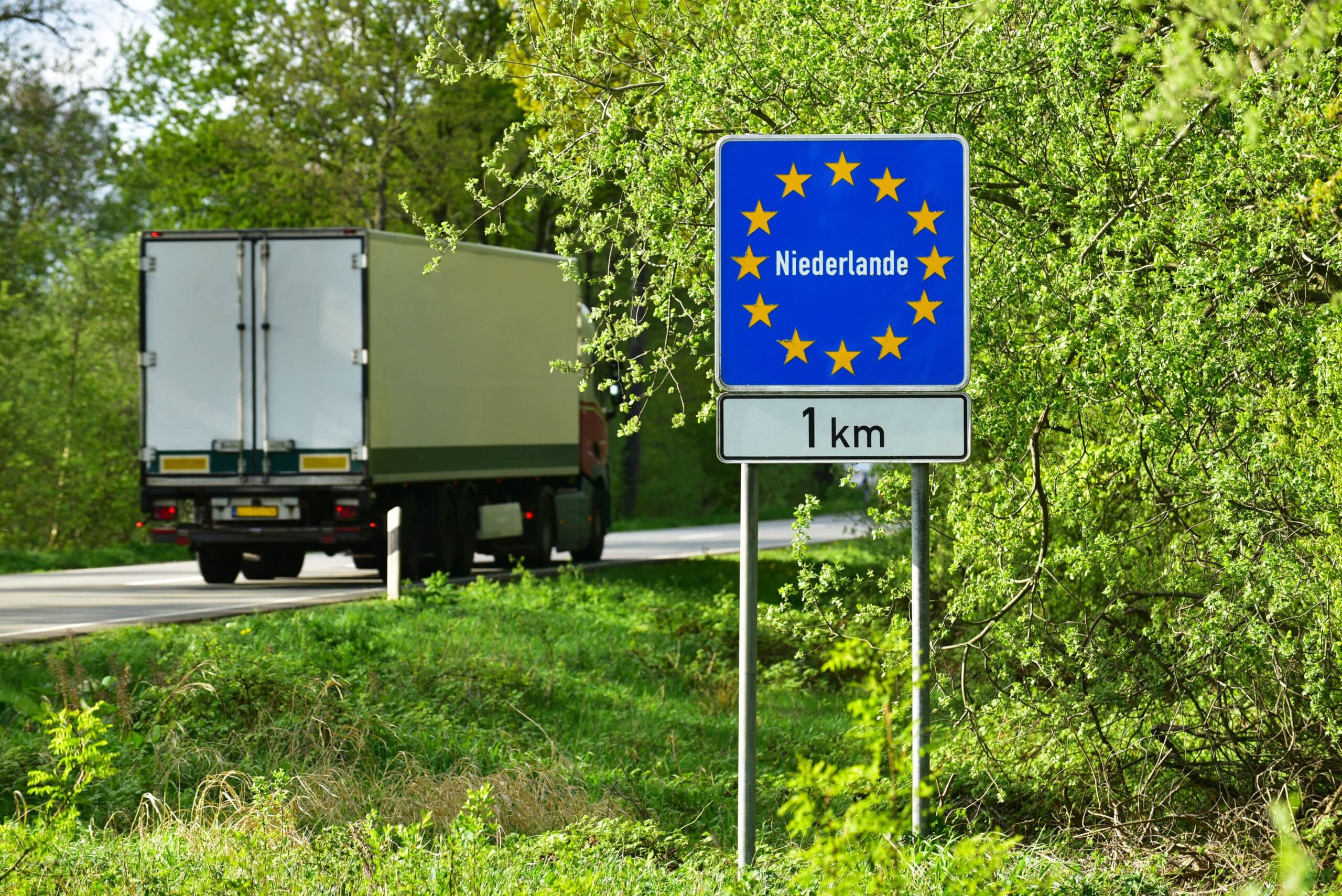Table of Contents
Wondering if driving HGVs is the best way to combine earning and travelling?
Keen to see a bit more of the world than the biggest motorways in the UK?
For many, after the completion of their HGV training, driving abroad is an exciting and attractive proposition – but what do you need to know before you can get started?
The team at HGVTN has compiled the most asked questions from would-be drivers like yourself in this simple and clear blog, to give you the answers you are seeking once and for all.
Read on today to discover for yourself!

Is my UK HGV theory test valid abroad/in other countries?
If you are planning to earn a living while working abroad, you’ll need to make sure your paperwork is in order – especially since Brexit in 2020.
Failure to do so can lead to prosecution and failure to complete the job you’ve been hired for. These documents include:
- UK driving licence
If you completed your driving qualifications in the wider UK, you are also qualified to drive in the EU (including Switzerland, Norway, Iceland, or Liechtenstein) as long as you carry your photocard licence at all times.
This means your theory and practical tests are valid.
However, if you have a paper licence or one that was issued in Gibraltar, Guernsey, Jersey, or the Isle of Man, you’ll also need to purchase an International Driving Permit – IDP.
There are three types of international driving permits and which one you need depends on what country you are visiting – so you may need more than one across your travels.
IDPs come in the following three types:
- 1926
- 1949
- 1968
And can be purchased from any store with PayPoint capabilities, such as local convenience stores or the Post Office.
- Driver CPC
While your driver CPC training (Certificate of Professional Competence) is valid, you will also need to carry your Driver Qualification Card (DQC) to demonstrate this and ensure legal passage in the EU or Iceland, Liechtenstein, Norway, and Switzerland.
- Passport
You should carry your passport when driving abroad – most people know this.
But you may not know that there are specific parameters on what makes your passport legal, including:
- Being less than 10 years old
- Having at least 6 months left before it expires
As such, you should be sure to check before you leave for Europe.

Can I drive abroad with an HGV licence?
You absolutely can.
Despite changes to driving abroad since Brexit, the mutual recognition of Driver CPC qualifications has been maintained. Meaning that HGV driving across EU member states remains accessible.
You should be aware, however, that as well as having the right paperwork (see above) and visas (see below) you will need appropriate vehicle insurance to remain roadworthy.
You may also need a ‘green card’ if you drive in any of the following countries:
- Albania
- Belarus
- Moldova
- Ukraine
A green card verifies your insurance coverage, providing physical evidence of your insured state.
*Did you know HGV Training Network is incredibly highly popular within the industry? With hundreds of highly-rated testimonials from past students.
Do you need a visa to drive an HGV abroad?
You shouldn’t need a visa to drive in the EU as long as you don’t spend more than 90 days there within a 180-day period.
However, countries across the world have different lifestyles, political landscapes, and work regulations, so it’s always worth checking the rules of the country you intend to visit before you leave – just to be safe.

Do you need different HGV licenses for different countries?
Thankfully, you won’t need a different HGV licence for the countries you visit – your current licence should be sufficient.
Just make sure you carry all of the relevant paperwork so that if stopped, you can demonstrate your qualifications without delay.
What is the day-to-day reality of driving abroad?
Now you’ve got your head around the legalities of driving in the EU, understanding what your day-to-day life will be like is also important – and helps to set your mind at ease.
Our most commonly asked questions on HGV life are explored below.
Are driver time regs the same in Scotland/Europe?
Despite leaving the EU, the UK still follows the same rules on drivers’ hours and tachographs.
This includes UK drivers who are driving in the UK or UK drivers who are travelling to, from, or through an EU country.
You will already be familiar with these rules – as you will already be following them – but refreshing your understanding of driver time regulations and tachograph use would be prudent to avoid prohibition from driving, fines, or points of your licence.

Where do I sleep when working away?
Sleeping while away is perhaps one of the more complicated areas of HGV driving abroad and the rules in many European countries are currently in flux.
For the most part, it is not advised to sleep in your cab as it doesn’t give you a proper break and can be unsafe – especially if you are sleeping at a lay-by or roadside.
Plus, logistically, it can be hard to find somewhere that will not result in a fine if you stay too long.
Your safest bet is to look for a motorway hotel or designated truck stop – sometimes called a travel plaza. There are plenty of apps or websites, like Truck Parking Europe, which can help you find somewhere safe to stay, even in countries as far afield as Georgia and Turkey.
*Looking for an HGV training location near you? HGV Training Network has over 50 sites across the country so you won’t need to commute too far.
What do I need to cross borders when travelling to Europe?
Unless stated otherwise by an individual country, all you will need to cross the country borders of Europe safely are the documents we’ve discussed above.
However, to be extra sure of crossing legally, we do recommend checking the specifics of each country before you arrive so you can continue to work without issue.
What laws do you need to follow to drive HGVs abroad?
Laws differ across the EU, despite the fact that most, if not all, European countries share driver time regulations.
This can include:
- The laws of the country itself – which may be especially important for LGBTQ+ or disabled HGV drivers.
- Customs rules – based on the cargo you are carrying and how you declare these goods.
- Driving-specific laws – including speed limits and giving priority to the right, restricted driving zones, or restrictions for driving HGVs on Sundays and public holidays.
- Health and safety rules – which can include the use of country-specific identifier stickers and stocking emergency breakdown kits.
To ensure you aren’t caught out, it is essential you spend some time looking over the rules that may affect you on your job and should be considered part of the planning process before you drive abroad.
It isn’t safe or reasonable to assume that HGV driving will be the same on the continent as here in the UK simply because we share other legislation.
Drive safely abroad with the HGV Training Network
Whether you are an old hand who has traversed Europe for years or a newly qualified HGV driver considering going further afield for the first time, there is plenty that you need to know.
Some time spent checking the rules and regulations of the country you intend to travel to can mean that your journey is much more pleasant and ensure you can make your drop without a hitch.
To book training or for help and advice, why not email us at contact@hgvtrainingnetwork.com or fill in our contact form? We have decades of experience among our HGV driver instructors and can point you to the help you need.








